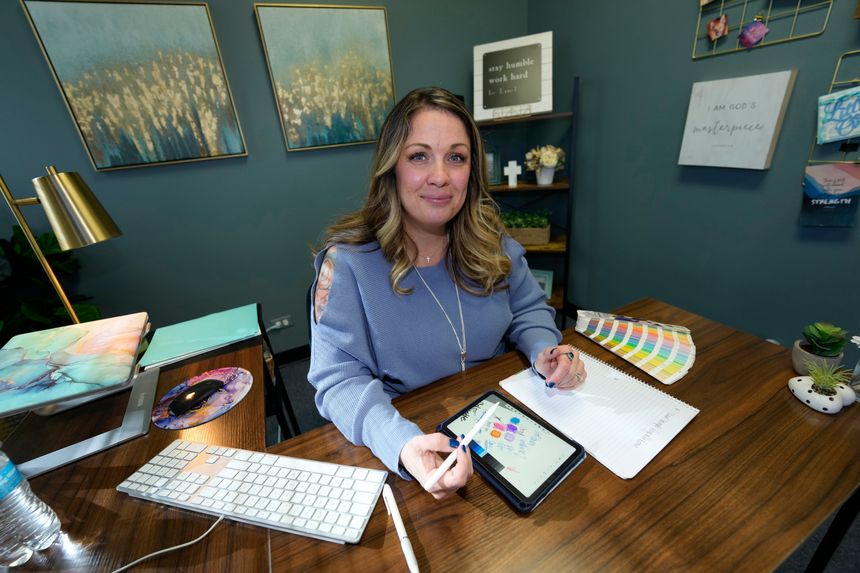Web designer Lorie Smith in her office in Littleton, Colo., Nov. 7.
Photo:
David Zalubowski/Associated Press
Same-sex marriage wasn’t supposed to infringe on those who don’t believe in it. “It must be emphasized,” Justice
Anthony Kennedy
wrote for the Supreme Court in Obergefell v. Hodges (2015), “that religions, and those who adhere to religious doctrines, may continue to advocate with utmost, sincere conviction that, by divine precepts, same-sex marriage should not be condoned.”
That hasn’t been
Lorie Smith’s
experience. She owns 303 Creative, a Denver-area company that designs wedding websites. Her faith teaches that marriage mirrors Christ’s relationship with the church and “fulfills the complementary nature of God’s first institution.” The state defines her business as a public accommodation subject to the Colorado Anti-Discrimination Act, which requires her to serve customers regardless of sexual orientation.
Ms. Smith says in an interview that she’s happy to serve gay clients, but “I can’t create every message that is requested of me . . . no matter who does so.” She would also refuse to promote messages that contradict biblical truths, promote abortion or gambling, or demean people. She wouldn’t produce a website that includes the Westboro Baptist Church’s slogan “God hates f—” (the last word is an antigay slur) even if the prospective client claimed religious discrimination.
In 2016 she filed a lawsuit seeking to enjoin Colorado from requiring her to design websites for same-sex weddings. She lost in both district court and the 10th U.S. Circuit Court of Appeals. On Monday the high court will hear arguments in 303 Creative v. Elenis, which will decide whether Justice Kennedy’s reassurance in Obergefell meant anything.
Ms. Smith claimed in her lawsuit that the prospective application of the law would violate her rights to freedom of both religion and speech under…
Click Here to Read the Full Original Article at RSSOpinion…

